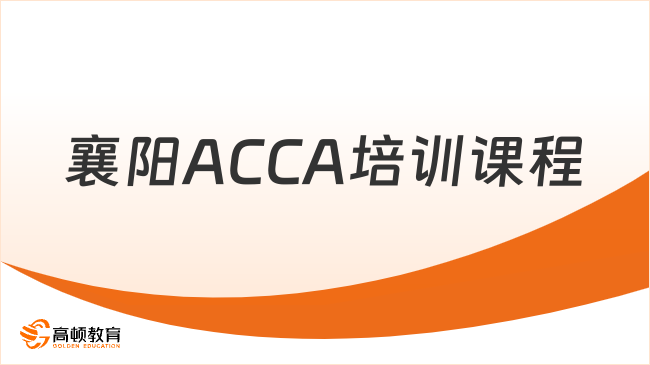资深ACCA讲师总结:如何通过F8&P7考试?
来源:
ACCA考友论坛
2016-02-23
18年授课经验的ACCA资深导师 Paul Merison, 结合高尔夫的智慧为大家分享如何通过F8与P7考试(这样的文章就不翻译了,看原汁原味的英文原文吧):
How to pass the ACCA F8 and P7 papers
I have been an audit tutor for almost 18 years. Throughout that time, students have struggled to pass audit papers. In fact I regularly meet students who have only 2 papers left to complete their ACCA exams – F8 and P7. It happens far too often.
So, here is my advice on how to pass F8 and P7 (it is mostly the same advice for both papers).
But this will not make you pass.
I can tell you what to do to pass, I can explain all the knowledge and have you nodding at me with a smile showing you understand it all clearly. I can work past exam questions in front of you over and over again and you will tell me you totally understand the technique and what I have shown you.
But that will not make you pass either.
GOLF
I know how to be an excellent golfer. The main technique is really easy to explain and to learn – just keep your head absolutely still when swinging any golf club, and the ball will probably go straight.
Simple. And it works.
So why, when I hit a golf ball, does it fly off sideways so often?
Two reasons:
1.When I am hitting the ball, my body wants my head to move, so unless I remind myself “head still, head still, head still” whilst I am swinging the golf club it regularly goes wrong;
2. I suppose the “head still” thing would come naturally if I swung a golf club every day, but I do not practise enough to make it natural (and note that even world class golfers sometimes let their head move by accident, suggesting that even they sometimes need to remind themselves head still, head still, head still).
HOW TO PASS AUDIT EXAMS
Most of the marks on P7, and at least 60% of the marks on F8, are not a reward for knowledge. Instead, the majority of marks on F8 and P7 are for your ability on practical scenario questions.
STAGE 1
There are only around 5 or 6 types of practical audit question (audit exams are very repetitive). Therefore stage 1 is to learn the technique for each type of practical audit question (ethics/professional issues, audit risk, internal controls, substantive testing, audit reports, non-audit assignments – this last one is more for P7 than F8).
STAGE 2
A lot of students do stage 1 and when I ask they clearly know the technique. Unfortunately, far too few ever bother to learn from my golf story above.
PRACTISE using the technique, on real past exam questions:
firstly to practise identifying the points you want to make
secondly to practise the explanations, in writing, in full
STAGE 3
Repeat Stage 2. Repeat it a LOT, especially in the final weeks and days and then hours before the exam. Repetition is annoying and eats up time but it works – how many golf balls do you think Tiger Woods hits each week?
STAGE 4
On exam day, think through the techniques as you enter the exam hall.
Write them on the exam paper next to each question requirement during the 15 minutes of reading time.
And when writing your answers (i.e. hitting the golf ball), keep re-reading the technique and repeating it inside your head (not out loud!!) and make sure you are sticking to it.
STAGE 5
For the pure knowledge/theory questions (more for F8 than P7), practise writing out your own explanations of the technical areas of the syllabus. It is so much easier to explain something for the 10th time than it is for the first (trust me, all experienced tutors know this all too well!).
SOME SPECIFIC ADVICE FOR P7 STUDENTS
You learned most of the audit knowledge (the standards) at F8 – there are only a few more added for P7.
However, the accounting standards that you are auditing are MUCH more numerous on P7, so take some time to practise writing a minimum of 5 bullet points to summarise each accounting standard, to help embed the key points in your head.
If it is that simple, why the poor pass rates then?
You are not going to enjoy reading this bit.
It is depressing in many ways, but you need to read, understand, grit your teeth and do what I say.
Most students seem happy to practise the numbers questions, and if you can get the methods half right you pass.
Unfortunately, almost all audit questions require practise of WRITING not numbers, and most students seem to hate doing this (or will make rough notes, instead of writing things out in full)
I think the problem here is that calculations cannot be half done, so students will try the whole thing just like in the exam hall – whereas with written answers it is far too easy to think up some ideas, then check the answer to see if your ideas are there…and then stop.
HOW MUCH SHOULD YOU WRITE?
There seems to be some confusion about how much detail is needed to earn a mark. Aim for 2-4 lines of writing for every mark you are trying to earn, and bear in mind that anything less than 10 words is unlikely to be clear enough to earn a full mark (look at the points made in this article and aim for a similar amount of words for each point you make in the exam)
To make your points longer, explain everything – and that means every point you write should aim to include the word “because” (or similar, such as “in order to” or “as”)
HARD WORK REQUIRED – Fully planned content, followed by fully written out answers, to exam time, in order to build up thinking/writing speed.
Knowledge of accounting is important both on F8 and P7, so:
For F8, ensure you understand how the books of prime entry and supporting ledgers fit together, and make sure you are comfortable with the main points of te accounting for inventory, tangible non-current assets, development costs, provisions and contingencies, and events after the reporting period (these seem to be the ones that get examined the most)
For P7, ensure you are happy with every accounting standard on F7 or P2
Knowledge of audit standards is also important, especially for F8, so:
For F8, make sure you are able to explain the key points of every audit standard from ISA 200 to ISA 720 (except ISAs 220, 550 and 600)
For P7, the more basic ISAs are less likely to be tested directly, but more complicated ones such as Subsequent Events, Other Information, and Initial Audits remain worth knowing well, and core standards on areas such as audit risk and response, evidence, and audit reports must not be ignored
HARD WORK REQUIRED – Audit has a relatively low knowledge requirement compared to some exam papers, so there is no excuse for not putting in the effort and knowing your stuff. Remember what I said above – staring at the knowledge does not make it go in. Practise writing it out or speaking it out loud without the Notes in front of you.
CONCLUSION
No conclusion is needed.
Read the above guidance. And do it.
高顿网校温馨提醒
为了方便各位学员能更加系统地掌握考试大纲的重点知识,帮助大家充分备考,体验实战,高顿网校开通了全免费的ACCA题库(包括精题真题和全真模考系统),题库里附有详细的答案解析,学员可以通过多种题型加强练习。戳这里进入ACCA免费题库>>>
精彩推荐:
版权声明:本条内容自发布之日起,有效期为一个月。凡本网站注明“来源高顿教育”或“来源高顿网校”或“来源高顿”的所有作品,均为本网站合法拥有版权的作品,未经本网站授权,任何媒体、网站、个人不得转载、链接、转帖或以其他方式使用。
经本网站合法授权的,应在授权范围内使用,且使用时必须注明“来源高顿教育”或“来源高顿网校”或“来源高顿”,并不得对作品中出现的“高顿”字样进行删减、替换等。违反上述声明者,本网站将依法追究其法律责任。
本网站的部分资料转载自互联网,均尽力标明作者和出处。本网站转载的目的在于传递更多信息,并不意味着赞同其观点或证实其描述,本网站不对其真实性负责。
如您认为本网站刊载作品涉及版权等问题,请与本网站联系(邮箱fawu@gaodun.com,电话:021-31587497),本网站核实确认后会尽快予以处理。
点一下领资料
【整理版】ACCA各科目历年真题
真题高频考点,刷题全靠这份资料
下载合集
acca全科学习思维导图
梳理核心考点,一图看懂全部章节
下载合集
2023年acca考纲解析
覆盖科目重难点,备考按照计划走
下载合集
acca备考 热门问题解答
- acca考试怎么搭配科目?
-
建议优先选择相关联的科目进行搭配报考,这样可以提高备考效率,减轻备考压力,1、F1-F4:为随时机考科目,难度较低,这里可以自行随意选择考试顺序。2、F5-F9:如果你的工作的和财务会计或者审计有关、或者你比较擅长财务和审计的话,推荐先考F7和F8。你可以选择一起考ACCA考试科目F7和F8或者先考F7(8)再考F8(7),这就要取决你一次想考几门。3、P阶段:选修科目中,建议企业首选AFM!第二部分科目进行选择,如果AA和SBR掌握学生更好,可以通过选择AAA,如果SBL掌握的好,可以自己选择APM。
- acca一共几门几年考完?
-
acca一共有15门考试科目,其中有必修科目和选修科目,考生需要考完13门科目才能拿下证书。
- acca一年考几次?
-
acca一年有4次考试,分别是3月、6月、9月和12月,分季机考科目是采取的这类四个考季的模式,而随时机考则是没有这方面的时间规定限制,可以随报随考。
- acca的含金量如何?
-
ACCA证书的含金量是比较高的,从就业、能力提升、全球认可等角度来说,都是比较有优势的证书,其含金量主要表现在以下几个方面:1、国际化,认可度高;2、岗位多,就业前景好;3、缺口大,人才激励。
严选名师 全流程服务
其他人还搜了
热门推荐
-
盐城ACCA培训机构,高顿ACCA要不要报? 2023-07-04
-
绵阳ACCA培训课程,高顿ACCA值得报吗? 2023-07-04
-
莆田ACCA培训推荐,高顿ACCA要不要报? 2023-07-03
-
昆山ACCA培训班,高顿ACCA培训介绍? 2023-07-03
-
会计专业有哪些证书大学可以考?证书报考条件及获取指南一览! 2023-07-03
-
会计专业acca方向是学什么的? 2023-07-03
-
银川ACCA培训机构,高顿ACCA有哪些优势? 2023-07-03
-
襄阳ACCA培训课程,高顿ACCA值得报吗? 2023-07-03
-
南通ACCA培训介绍,高顿ACCA课程如何? 2023-07-03
-
鞍山ACCA培训推荐,高顿ACCA推荐吗? 2023-07-03
-
西宁ACCA培训推荐,高顿ACCA有哪些优势? 2023-06-26
-
江门ACCA培训机构,高顿ACCA好不好? 2023-06-26
-
赣州ACCA培训课程,高顿ACCA推荐吗? 2023-06-26
-
廊坊ACCA培训班,高顿ACCA值得报名吗? 2023-06-25
-
大同ACCA培训介绍,高顿ACCA课程如何? 2023-06-25
-
大同ACCA培训介绍,高顿ACCA课程如何? 2023-06-25
-
保定ACCA培训推荐,高顿ACCA培训介绍? 2023-06-25
-
珠海ACCA培训推荐,高顿ACCA要不要报? 2023-06-25
-
邯郸ACCA培训介绍,高顿ACCA怎么样? 2023-06-25
-
包头ACCA培训课程,高顿ACCA课程如何? 2023-06-25
-
烟台ACCA培训推荐,高顿ACCA课程怎么样? 2023-06-25
-
洛阳ACCA培训班,高顿ACCA值得报名吗? 2023-06-25
-
徐州ACCA培训推荐,高顿ACCA怎么样? 2023-06-21
-
唐山ACCA培训介绍,高顿ACCA要不要报? 2023-06-21
-
绍兴ACCA培训课程,高顿ACCA推荐吗? 2023-06-21
-
柳州ACCA培训班,高顿ACCA好不好? 2023-06-21
-
呼和浩特ACCA培训机构,高顿ACCA培训介绍? 2023-06-21
-
海口ACCA培训推荐,高顿ACCA怎么样? 2023-06-21
-
温州ACCA培训课程,高顿ACCA怎么样? 2023-06-21
-
淄博ACCA培训机构,高顿ACCA好不好? 2023-06-21
 更多服务
更多服务

























